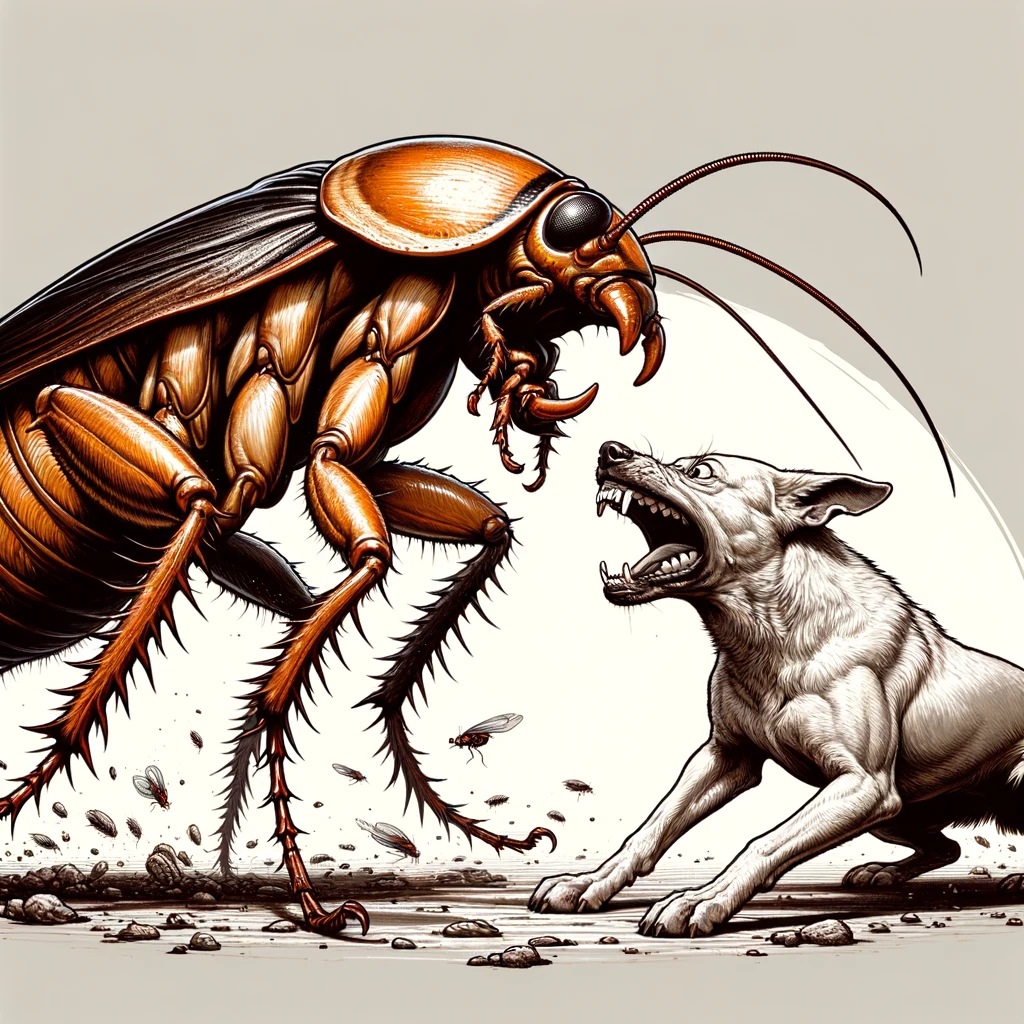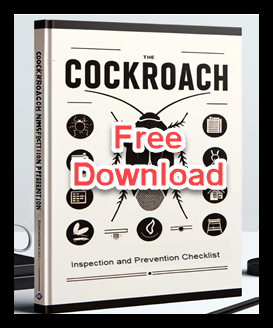Do Roaches Bite? Uncovering the Truth and Prevention Strategies
 A common question that concerns many homeowners is, “Do roaches bite?” While the thought of cockroaches may already evoke discomfort, the idea of them biting humans adds an extra layer of concern. This post aims to debunk myths surrounding cockroach bites, outline how to identify and treat them, and share effective strategies to prevent cockroach bites, focusing on the keyword ‘do roaches bite’.
A common question that concerns many homeowners is, “Do roaches bite?” While the thought of cockroaches may already evoke discomfort, the idea of them biting humans adds an extra layer of concern. This post aims to debunk myths surrounding cockroach bites, outline how to identify and treat them, and share effective strategies to prevent cockroach bites, focusing on the keyword ‘do roaches bite’.
Debunking Myths: Do Cockroaches Bite?
Contrary to popular belief, cockroaches are not known to frequently bite humans. These pests are omnivores that prefer decaying organic matter, but in extreme cases where their populations are large and food is scarce, cockroaches may bite humans. Such bites are rare and usually not the primary concern when dealing with cockroach infestations.
When and Why Do Cockroaches Bite?
- Scarcity of Food: In overcrowded conditions with limited food sources, cockroaches might resort to biting humans.
- During the Night: Most cockroach species are nocturnal. If bites occur, they are more likely during the night, especially on exposed areas of skin.
Identifying and Treating Cockroach Bites
Cockroach bites are uncommon, but it’s important to recognize them and understand how to treat them effectively.
Identification
- Appearance: Cockroach bites may appear as small, red bumps, similar to mosquito bites. They can become swollen and cause irritation.
- Location: Bites are often on the hands, feet, face, or other exposed areas during sleep.
Treatment
- Clean the Area: Wash the bite with soap and water to prevent infection.
- Reduce Swelling: Apply a cold compress to reduce swelling and alleviate discomfort.
- Seek Medical Attention: If the bite appears infected or symptoms worsen, consult a healthcare provider.
Strategies to Prevent Cockroach Bites
Preventing cockroach bites largely involves measures to control and eliminate cockroach populations in your home.
Maintain Cleanliness
- Eliminate Food Sources: Store food in sealed containers and dispose of garbage regularly.
- Reduce Clutter: Clutter provides hiding places for cockroaches. Keeping your home tidy can reduce their hiding spots.
Seal Entry Points
- Inspect and Seal: Check for cracks, crevices, and entry points around doors, windows, and plumbing. Seal them to prevent cockroach entry.
Use Pest Control Methods
- Baits and Traps: These can help reduce cockroach populations.
- Professional Pest Control: For severe infestations, professional extermination may be necessary.
Conclusion
While the question “Do roaches bite?” can cause unease, it’s reassuring to know that cockroach bites are rare and largely preventable. By understanding the conditions under which bites may occur and implementing effective prevention strategies, you can minimize the risk and keep your home safe from these pests.
- The Life Span of a Cockroach
- Do Cockroaches Eat Clothes?
- Do Cockroaches Have Teeth?
- Shrimps and Cockroaches
- Will Sleeping with the Light On Keep Cockroaches Away?
- How to get roaches out of your car overnight
- Do Cockroaches Feel Pain?
- How Many Legs Do Cockroaches Have?
- Comparing Cockroach Eggs Size for Different Types of Cockroaches
- Identifying a Cockroach Bite on the Lips or Face
- Black Water Bug Identification and Control
- Why Do Water Bugs Come Out At Night?
- What Does Roach Rash Look Like?
- Can Cockroaches Bite Your Eyelid?
- Can Cockroaches Live in Your Balls?
- How did cockroaches get their name?
- Why Do Cockroaches Shed Their Skin?
- What Smell do Palmetto Bugs Hate?
- Baby Palmetto Bug: Identification and Control
- Cockroach Eggs vs Poop: How to Tell the Difference
- How to Get Rid of Water Bugs
- How Long Can a Cockroach Live Without Air?
- The Lifecycle of the German Cockroach: From Egg to Adult
- Do Mice Eat Roaches
- Wood Roach vs. Cockroach

